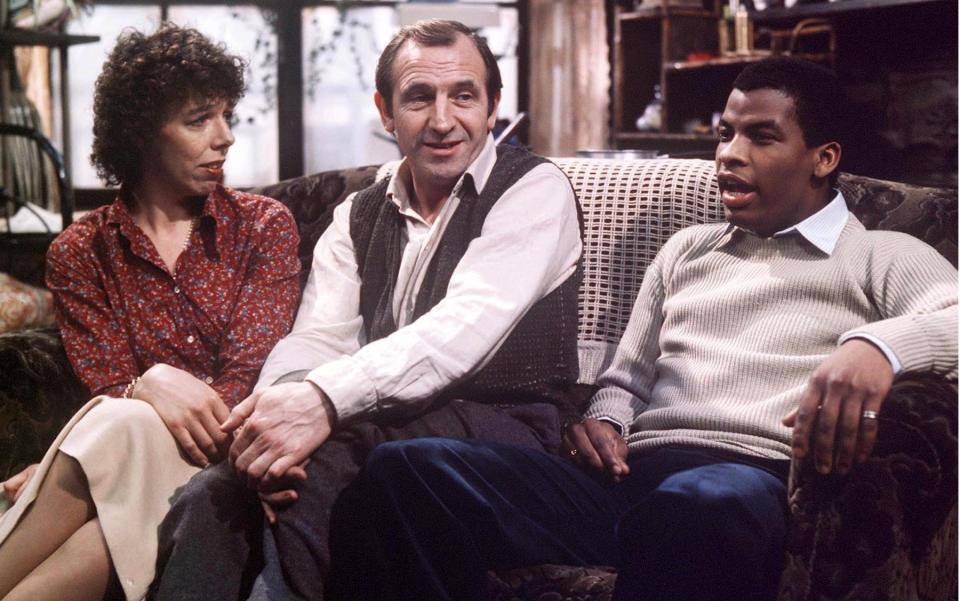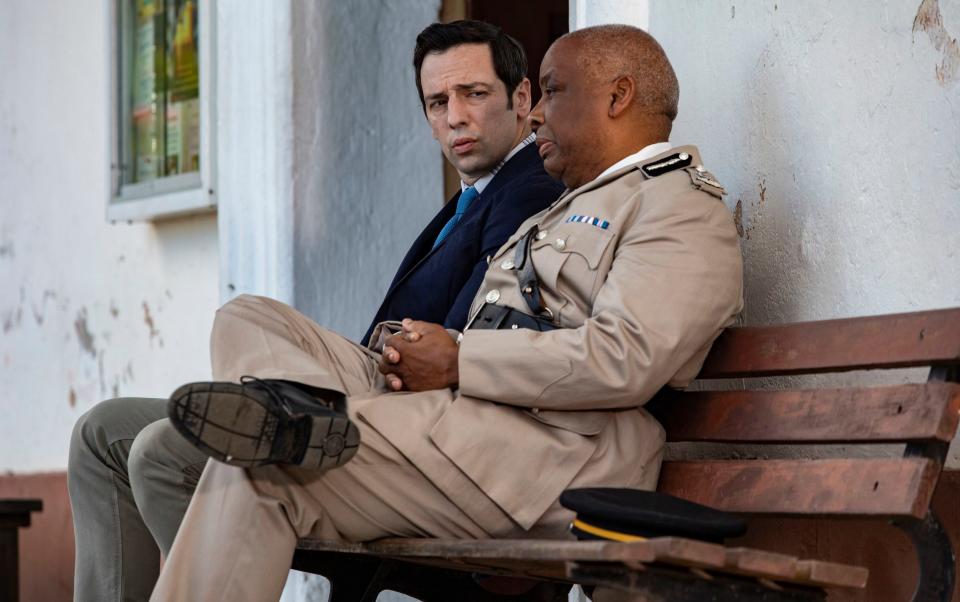Death in Paradise’s Don Warrington: ‘Should Rising Damp be edited? No – its intentions were good’

As the taciturn, inscrutable Commissioner Selwyn Patterson in BBC’s Death in Paradise, Don Warrington has helped to solve almost 90 murders since the show first aired in October 2011. The programme’s genial tone, Caribbean fantasy backdrop and family-friendly formula have made it The Morecambe & Wise Show of 21st-century TV: last year’s Christmas special was the third most-watched programme over the festive period (and it will return on Boxing Day this year).
In a media landscape fractured by streaming, multi-channel competition and ever more high-concept thrillers, the reliable comforts of Death in Paradise feel almost wantonly old-fashioned. “Sometimes people just want a TV show that granny and your eight-year-old daughter can watch together,” says Warrington. “Because the puzzle is always solved, there’s an element of ‘let’s pretend’ about the world of Death in Paradise that’s almost magical.”
Now 71, Warrington has settled into a professional rhythm that sees him spend five months of the year on Guadeloupe, where Death in Paradise is filmed, with the odd theatre project in between. He’s an MBE and a formidable stage actor with a lively CV that hopscotches between Casualty and the National Theatre plus a stint on Strictly in 2008. He knows, though, that any conversation with him will sooner or later circle back to Rising Damp, Eric Chappell’s revolutionary sitcom that ran on ITV between 1974 and 1978. He played Philip, the charming, aspirational, erudite black tenant who is everything Leonard Rossiter’s unrepentantly racist, wretchedly lonely Leeds landlord Rigsby is not. In an era of British sitcoms that included Mind Your Language, Philip, argues Warrington, was the first black character to appear in a mainstream TV show who was neither a racial stereotype nor object of ridicule but a respected, complicated figure in his own right. He was so groundbreaking that people still recognise Warrington in the street.
“This always surprises me, because physically I’m very different now to that slim, handsome boy who played Philip,” says Warrington with a slow smile, although Philip’s beautifully perfumed speaking voice remains intact. “But I’ve always known the show was important. A lot of black people still say to me that their parents would call them down from their bedrooms whenever it was on, because of the way it showed a black man on TV who was not being put down or abused.”
Instead, Philip always came out on top, even while playing to Rigsby’s blatant prejudices about African “otherness”: Philip, for instance, liked to pretend that he was the son of an African chief, although he was born in Croydon.

Should Rising Damp be edited for modern audiences, in the way that the BBC has reportedly edited “racial slurs” from shows such as Dad’s Army and Steptoe and Son? “No, because the show’s intentions were good. Sometimes you have to be generous in that way in order to get a proper view of how things were. And to understand that sometimes people were naïve in what they did. For me, the show was never cynical. And because you had such fine actors involved [the cast also included Richard Beckinsale and Frances de la Tour], the standard of work was just so great.”
Warrington was fresh out of London’s Drama Centre when he landed the role of Philip, having first played him in Chappell’s stage play The Banana Box, from which the TV series originated. “I was never meant to be in a sitcom,” he says with a grin. “I was meant to be a very serious actor. I’d studied method acting at drama school, I’d studied ancient Greek tragedy and French classical drama.”
He’d wanted to act ever since he watched Asian melodramas back home in Trinidad with his grandmother, captivated by their “huge displays of emotion”; before going to drama school, he worked as an assistant stage manager at Flora Robson Playhouse in Newcastle, where he was so seduced by the “big, posh, glamorous voices” of the actors that he changed his voice to sound like them. Yet life after drama school was full of disillusionment. Despite the success of Rising Damp, work failed to come Warrington’s way. “My contemporaries went off into rep, but that was never an option for me. Instead, I was told by casting directors that they’d get back to me if they were putting on A Taste of Honey. Drama school hadn’t prepared me for that. I felt I never had a buddy. I felt very lonely.”

He hadn’t experienced that much racism growing up in Newcastle, but only because he made such an effort to fit in. “I was one of two or three black boys in my school. I realised immediately I had to adapt to survive. I became a Geordie straight away, but I always felt on the outside of things.”
The 1980s and 1990s were a patchwork of TV work – C.A.T.S. Eyes, To Play the King, Red Dwarf and Lovejoy. “I spent long periods out of work. It was tough.” It was the stage where the burning classical actor in Warrington found its greatest expression. He has starred in Elmina’s Kitchen at the National; in Glengarry Glen Ross in the West End; as Willy Loman at the Royal Exchange in Manchester; and in two landmark productions for the black theatre company Talawa, also in Manchester: as Joe Keller in an all-black production of All My Sons in 2013 and then, three years later, as a tremendous King Lear.
Yet he thinks that the idea that there’s greater diversity within the industry today is, to some extent, a myth. “The world is much richer now than it was. But when it comes to representation in the theatre, it still doesn’t feel like a natural choice. [Black] actors are still a tool. They still have a pretty limited lifespan.” For all his placid exterior, there’s a restless melancholy to Warrington, and a quiet, burning anger. “I still don’t feel as though we are part of the fabric of this country. I feel we live in rented accommodation.”

He’s married, with two sons, one of whom, Archie Maddocks, is the author of the play A Place for We, about three generations within a British Trinidadian family that debuted to great acclaim at the Park Theatre in 2021. Beyond Death in Paradise, Warrington himself has no new projects on the horizon, but he admits that he’d love another crack at Lear. “Having done it before, I’d be starting from a less daunting place, possibly with more freedom.” He quotes liberally and so beautifully from Shakespeare, you wonder why he isn’t a permanent RSC member; I suspect he wonders this too.
Why does Shakespeare matter so much to him? “There is a unique nakedness to the language of Shakespeare. A unique clarity. It’s like watching snow. There is a truth in what he writes about human beings. When you do drama, you are holding a mirror up to human nature. And sometimes the view is not a good one. But you have to look. As an actor, that’s your job – to get to the truth.”
The Death in Paradise Christmas special airs on Boxing Day at 9pm on BBC One. It will return for a new series on January 6

 Yahoo News
Yahoo News 